Suffering From Kidney Stones in Cleveland TN?
Are you or a family member suffering from kidney stones in Cleveland TN? Kidney stones are hard masses that form in the kidneys, bladder or urinary passage that are created from products in your urine. Many patients will experience severe pain and will need a physical exam to determine the correct diagnosis and treatment plan. Your doctor may call your ‘kidney stones’ by different names, such as renal calculi, nephrolithiasis (relating to the kidneys), or urolithiasis (relating to the ureters, bladder or urethra), depending on their specific locations.
What happens if I ignore a kidney stone?
The consequences of ignoring kidney stones in women and men can range from no effect to sepsis and possibly death. This is because, while some kidney stones resolve on their own, there is a chance that a stone will block the ureters, or narrow the passage, which can lead to loss of kidney function, infection, or even sepsis. Maintaining a healthy urinary system is important to your overall health and wellbeing. So don’t ignore the signs and symptoms.
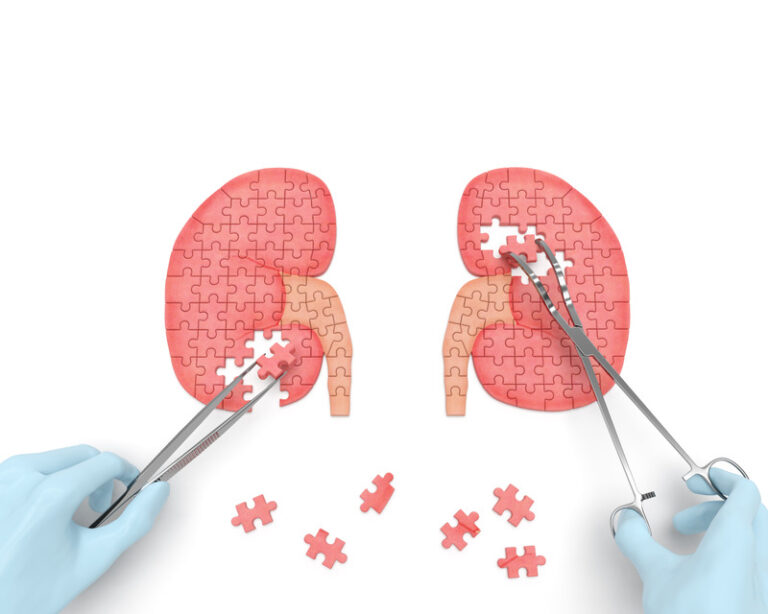
Our Top 3 Recommended Surgical Procedures for Kidney Stones
At Tennessee Valley Urology Center, our kidney stone specialists provide expert care in treating kidney stones. Our urology doctors will discuss your symptoms and run some tests to diagnose and agree the best course of action to help you to eliminate the stones. They will also recommend actions to help you to prevent kidney stone recurrence and maintain a healthy urinary system.
Shock Wave Lithotripsy
This is a procedure performed under anesthesia that focuses an ultrasound shock wave onto the location of the stone. This breaks the kidney stones into smaller fragments that can pass out of the ureters naturally. Follow up x-rays are obtained to document elimination of stone fragments.
Ureteroscopy
A ureteroscopy is performed under anesthesia and involves passage of a small scope via the urethra (tube leading from the bladder) into the bladder and then the ureter (tube leading from the kidney.). Once inside the ureter, the stone can be identified and either shattered with a laser or manipulated free from the ureter.
Percutaneous Nephrolithotomy
This is the most invasive procedure and is also carried out under general anesthesia. A nephroscope (a thin telescopic instrument) is passed through a one-inch incision in the skin in the back and into the kidney. The stone or stones are then shattered with a laser or using an ultrasound device allowing kidney stone removal.
Using a Ureteral Stent
With each type of procedure, it may be necessary to place a ureteral stent, a soft, temporary tube that runs from the kidney to the bladder. It protects the function and drainage of the kidney and allows swelling from the stone to resolve. A stent can be associated with frequency, urgency, and blood in the urine. Some degree of these symptoms should be expected while the stent is present. Symptoms may be helped by Tylenol or AZO, a urinary analgesic available over the counter at your pharmacy. Stents will always need to be removed at some point after your procedure.
The Best Non-Surgical Treatments for Kidney Stones in Cleveland TN
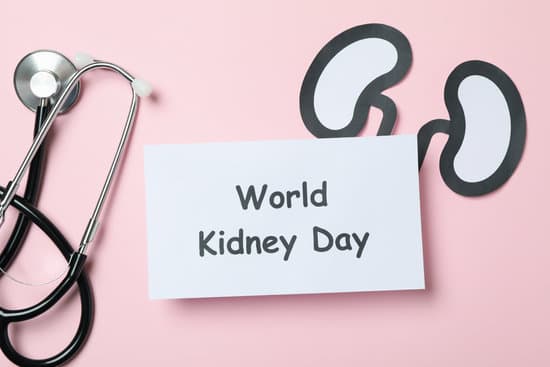
Prevention is always a better path to take than searching for a cure. However if you suspect it’s too late then you need to see one of our team urgently. The treatment options for kidney stones depends upon the size and location of the kidney stones. World Kidney Day is promoted each year on the 10th March to increase awareness of how to prevent kidney stones and related conditions.
Small kidney stones can be treated from home under the guidance of one of our urology specialists. Larger stones will require clinical care, medical interventions and possibly an emergency procedure.
Signs of Kidney Stones
If a stone is small enough, it may pass out through the urethra while urinating and without any problems. However, by the time a stone becomes big enough to cause symptoms, there is some discomfort or pain associated with passing it naturally.
Kidney stones become noticeable when they start to cause irritation or a blockage. In the event of a blockage, the pain can escalate quickly. The signs can be any one of the following:
- Pain in the lower back, which can manifest on either side
- A subtler pain that emanates from the stomach area
- Nausea or vomiting
- Fever or the ‘shivers’
- A change to the smell of the patient’s urine, and a cloudy appearance
- Signs of blood in the urine
If any of these symptoms are experienced by an individual it is recommended that they arrange a consultation with a urology specialist for evaluation.

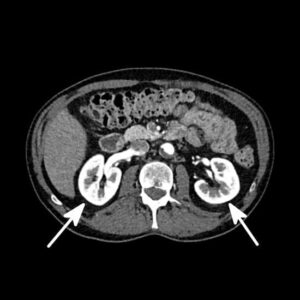
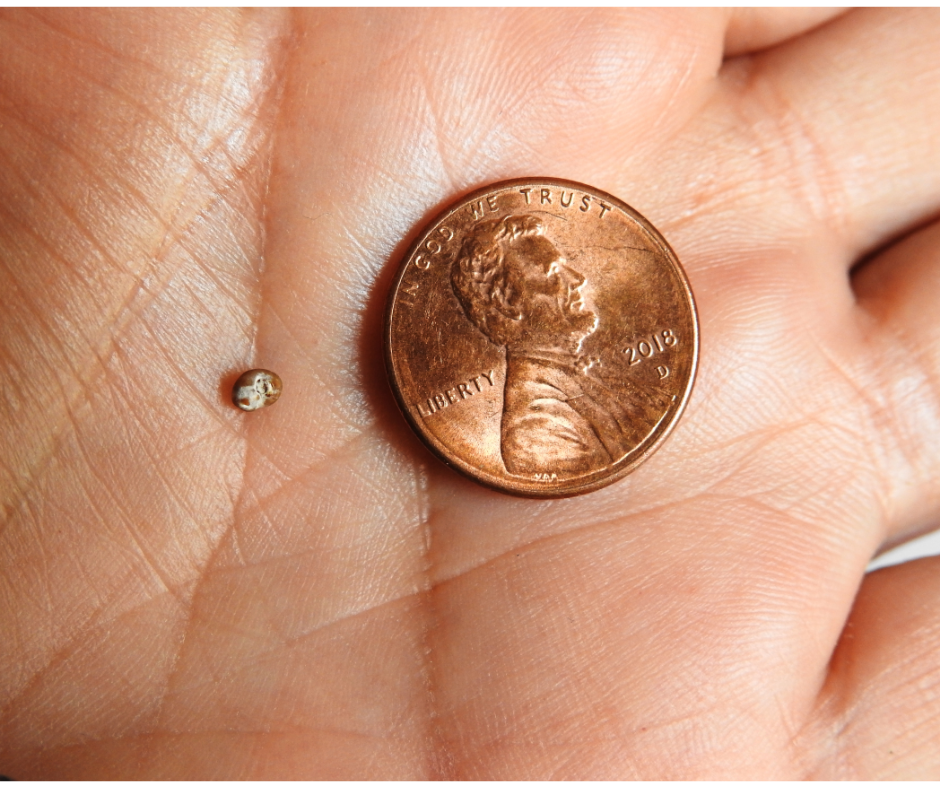
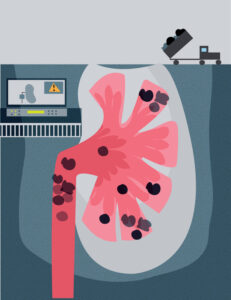
Small Kidney Stones in Cleveland TN
Most kidney stones are small. If the symptoms are mild to moderate, it is likely that the stones are small, so our specialist will prescribe an at-home kidney stone treatment that will help to persuade the kidney stone to exit the body naturally through the urine.
To aid with symptom management a specialist may prescribe:
- A pain medication
- Anti-nausea medication
- Alpha-blockers to help relax muscles in the ureters
- Alpha-blockers may reduce pain,
- Alpha-blockers may reduce the time required for the stone to eliminate.
Patients may also be recommended to do the following:
- Hyperhydrate (drink lots of water) to dilute the urine
- Drink diuretics, such as coffee or tea, to promote urine flow
- Add fresh lemon juice to water
- Avoid sugary drinks
- Reduce salt intake
If you have kidney stones in Cleveland TN and they are causing severe discomfort or pain, treatment may be procedural in nature.
Large Kidney Stones
When kidney stones are too large to exit the ureters naturally, the treatment must be more intensive. There are a range of procedures available, from minimally invasive to invasive. Before performing a procedure, your doctor will weigh the urgency of the procedure with the preference for the most minimally invasive option.
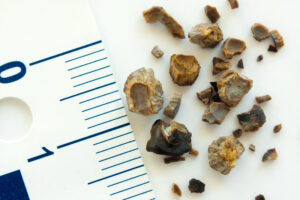
How Kidney Stones are Diagnosed
A urology specialist will diagnose adult men and women based on symptoms, testing, and medical history. Some things that can be a factor in making a diagnosis include:
- Past kidney stone patients
- A history of urinary tract infections
- A diet that’s high in purine-rich foods
During a medical examination a selection of tests may be performed, including:
- A urine test to identify potential infections or stone fragments
- Blood testing to assess kidney function and the presence or absence of compounds that can cause the growth of stones
- An examination of stones or fragments of stones detected in the urine, to diagnose the type
If there is considerable pain and it becomes necessary to make an urgent diagnosis, your urology physician may refer you for a CT scan, ultrasound, or x-ray.
Contact us today if you are suffering from kidney stones in Cleveland TN.

Common types of Kidney Stones
Calcium Oxalate or Calcium Phosphate
Calcium oxalate crystals account for about 90% of kidney stones cases. They are caused by the ionic reaction between calcium and oxalate in the urine, which creates the relatively insoluble calcium oxalate salt. Calcium kidney stones can be caused by inadequate fluid intake, which causes the oxalate to become concentrated. Paradoxically, they can also be created by an inadequate intake of calcium.
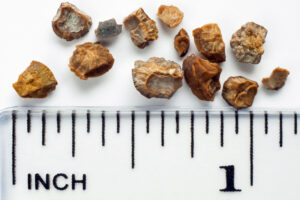
Uric acid
These are the second most common form, and they tend to be hereditary. Under the right conditions a diet that is rich in purines such as shellfish or organ meats can cause uric acid stones to form. The high purine content in these foods causes the production of monosodium urate to increase, which can lead to the formation of stones in some individuals.
Rare types of Kidney Stones in Cleveland TN
Struvite stones
These uncommon stones are the result of an upper urinary tract infection, caused by either a bacteria or yeast. The microbial growth that occurs because of the infection produces ammonia, which makes the urine more alkaline. This causes the quick development of magnesium-ammonium-phosphate (struvite) stones.
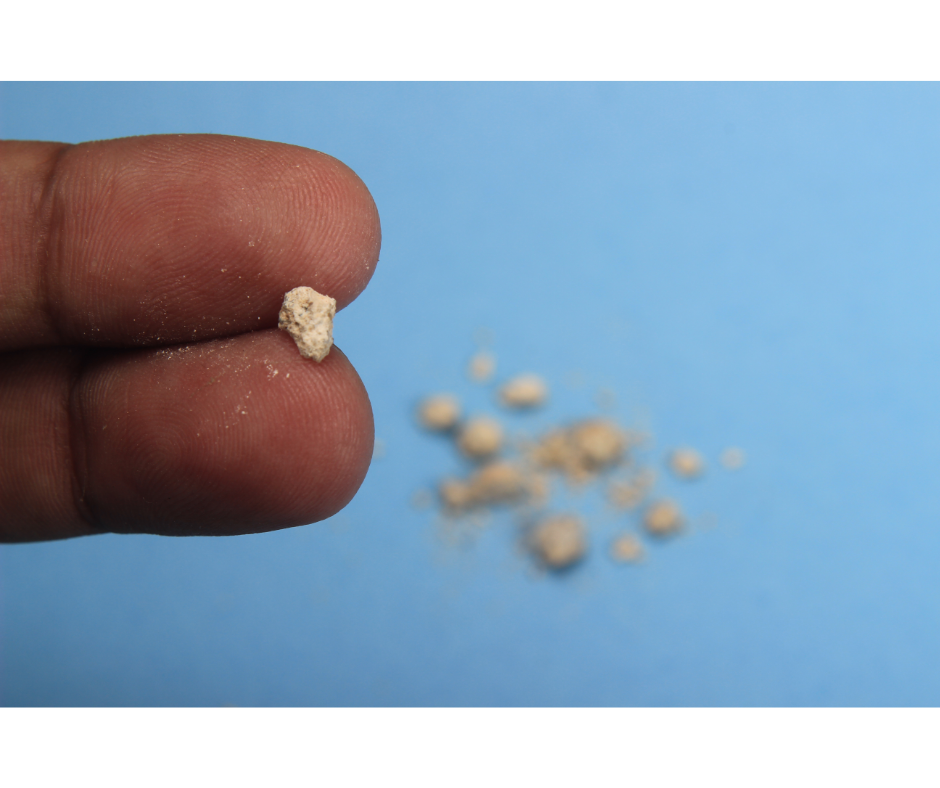
Cystine stones
These stones are rare and are the result of a condition known as cystinuria, which is a hereditary condition characterised by the leakage of the amino acid cystine into the urine. The cystine crystallizes into a yellowish, waxy mass. Because cystinuria is an inherited condition, cystine stones tend to follow family lineages and they frequently reoccur in people who are susceptible to them.
